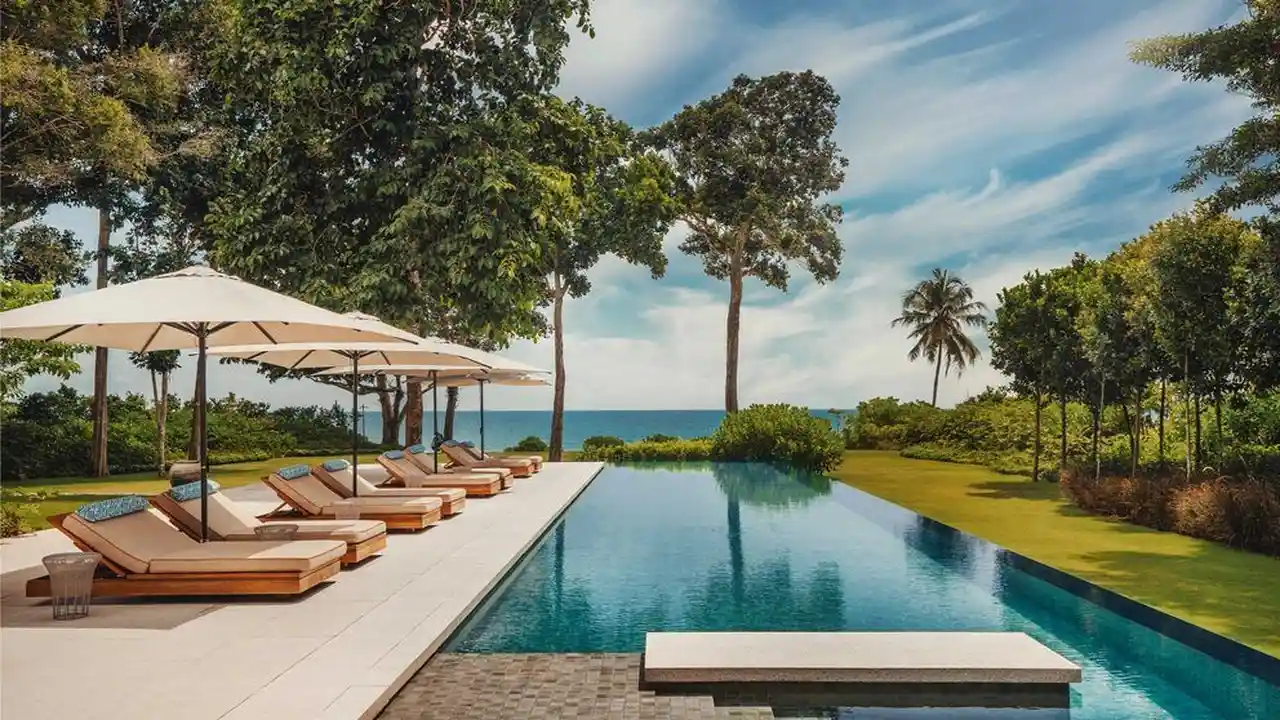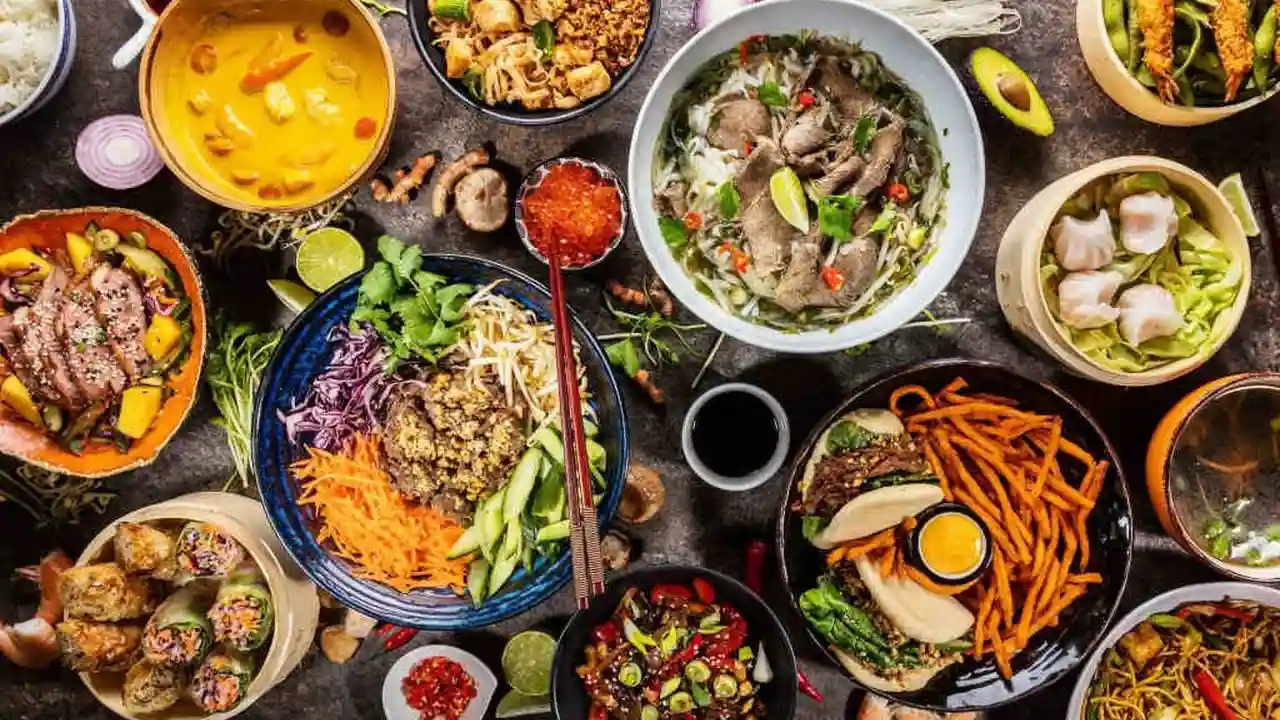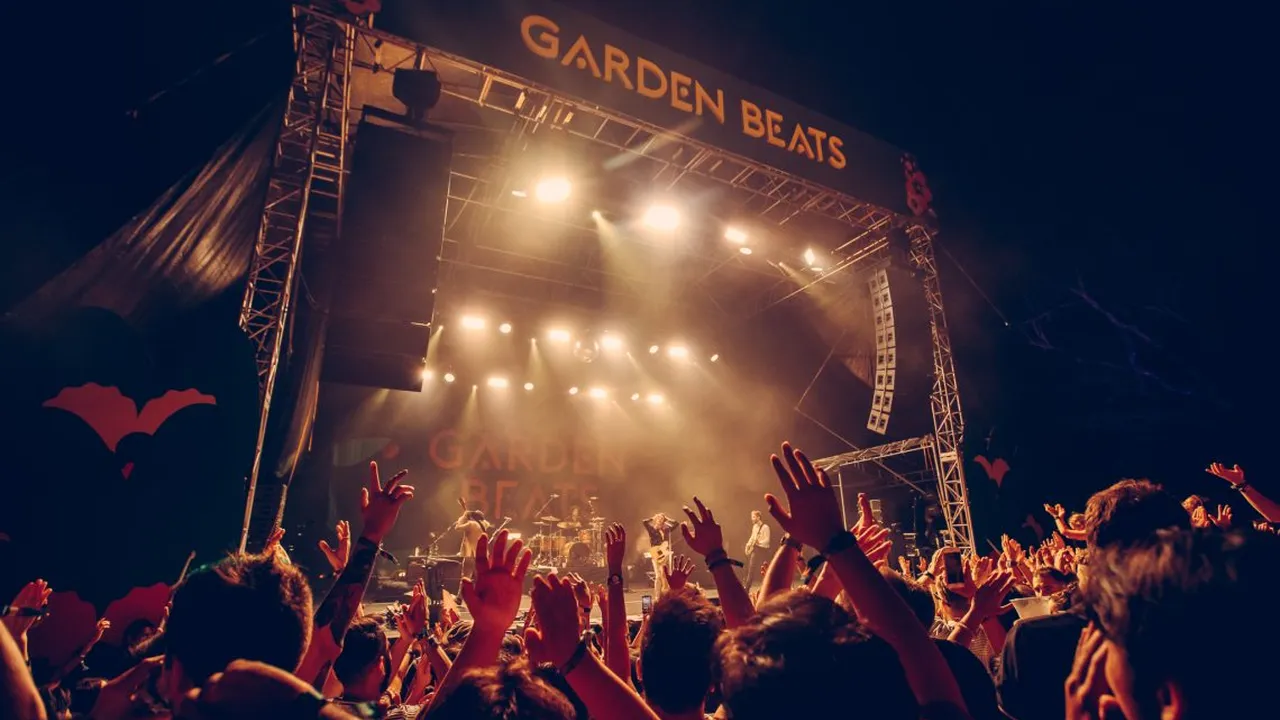Southeast Asia Eco Lodges Guide
Discover sustainable and eco-friendly lodges in Southeast Asia. Explore accommodations that prioritize environmental conservation and community support. Travel responsibly and make a positive impact.

What are Eco Lodges and Why Choose Them in Southeast Asia
So, you're thinking about heading to Southeast Asia? Awesome choice! But before you book that generic hotel, let's talk about eco lodges. What are they? Basically, they're accommodations designed to minimize their environmental impact and often support local communities. Think sustainable practices, renewable energy, and a focus on preserving the natural beauty around them. Why choose one? Well, beyond feeling good about your travel choices, you'll often get a much richer, more authentic experience. You'll be closer to nature, learn about local cultures, and maybe even pick up a few sustainable living tips along the way.
Top Eco Lodges in Southeast Asia A Detailed Review
Alright, let's dive into some specific eco lodges. I've picked a few that really stand out for their commitment to sustainability and the unique experiences they offer. Get ready to be inspired!
1. 4 Rivers Floating Lodge, Cambodia Koh Kong Conservation
Imagine waking up to the gentle lapping of water against your bungalow. That's the reality at 4 Rivers Floating Lodge in Cambodia. These aren't just any bungalows; they're luxurious tents perched on floating platforms on the Tatai River. The lodge is deeply committed to conservation, working closely with the local community to protect the surrounding mangrove forests and wildlife. You can explore the river by kayak, take guided jungle treks, or simply relax on your private deck and soak in the tranquility. They focus on minimal impact, and the experience is just incredible. Expect to pay around $200-$300 per night, depending on the season.
2. Bambu Indah, Bali Sustainable Luxury Retreat
Bali's Bambu Indah is all about sustainable luxury. This isn't your typical resort; it's a collection of antique Javanese bridal homes that have been lovingly restored and transformed into stunning villas. Each villa is unique, with its own character and charm. The lodge uses solar power, harvests rainwater, and has an organic garden that supplies the restaurant. You can swim in natural pools, take yoga classes, and explore the surrounding rice paddies. It's a truly immersive experience that connects you to Balinese culture and nature. Prices range from $150 to $500+ per night, depending on the villa.
3. The Datai Langkawi, Malaysia Rainforest Preservation
If you're looking for a high-end eco experience, The Datai Langkawi in Malaysia is a fantastic choice. Nestled in a lush rainforest overlooking the Andaman Sea, this resort is committed to preserving the surrounding environment. They have a dedicated team of naturalists who lead guided walks and educate guests about the local flora and fauna. The resort also supports local communities through various initiatives. You can relax on the pristine beach, swim in the infinity pool, or indulge in a spa treatment. It's luxury with a conscience, but be prepared to shell out $500+ per night.
4. Lao Spirit Resort, Laos Community Engagement
For a more rustic and authentic experience, check out Lao Spirit Resort in Laos. This eco lodge is located in a rural village near Luang Prabang. The bungalows are simple but comfortable, and the focus is on connecting guests with the local culture. You can participate in traditional Lao cooking classes, visit nearby villages, and learn about local crafts. The resort employs local villagers and supports community development projects. It's a great way to experience the real Laos and contribute to the local economy. Expect to pay around $50-$100 per night, making it a very affordable option.
5. El Nido Resorts Pangulasian Island, Philippines Marine Conservation
If you're a diving enthusiast, El Nido Resorts Pangulasian Island in the Philippines is a dream come true. This eco-luxury resort is located on a private island surrounded by stunning coral reefs. The resort is committed to marine conservation and has a dedicated team of marine biologists who monitor the reef health. You can go snorkeling, diving, or kayaking, and explore the incredible underwater world. The resort also uses solar power and has a waste management system. It's a fantastic option for combining luxury with responsible travel. Prices are in the $400+ per night range.
Eco Lodge Products and Gear Recommendations for Sustainable Travel
Okay, so you've booked your eco lodge. Now let's talk about what to pack! Here are a few product recommendations to help you travel more sustainably:
1. Reusable Water Bottle Hydro Flask vs Nalgene
Ditch the plastic bottles and invest in a good reusable water bottle. Hydro Flask and Nalgene are two popular options. Hydro Flask keeps your water cold for hours, which is great in the Southeast Asian heat. Nalgene is super durable and lightweight, making it ideal for backpacking. A Hydro Flask will set you back around $30-$40, while a Nalgene is typically around $15-$20. Consider your needs – cold water vs. durability – when making your choice.
2. Reef Safe Sunscreen Stream2Sea vs Raw Elements
Protect your skin and the coral reefs with reef-safe sunscreen. Many traditional sunscreens contain chemicals that can harm marine life. Stream2Sea and Raw Elements are two brands that offer effective protection without the harmful chemicals. Stream2Sea is a bit more affordable, around $15-$20 per bottle, while Raw Elements is a bit pricier, around $20-$25. Both are great choices; just make sure to apply liberally and often!
3. Bamboo Toothbrush Brush with Bamboo vs The Humble Co
Switch to a bamboo toothbrush to reduce plastic waste. Brush with Bamboo and The Humble Co. are two popular brands. Bamboo toothbrushes are biodegradable, so you can compost them when you're done. They're also surprisingly affordable, around $5-$10 each.
4. Solid Shampoo and Conditioner Bars Ethique vs Lush
Say goodbye to plastic shampoo and conditioner bottles with solid bars. Ethique and Lush offer a wide variety of solid bars that are travel-friendly and eco-friendly. They last a long time and eliminate the need for bulky plastic bottles. Expect to pay around $15-$20 per bar.
5. Packing Cubes Eagle Creek vs Amazon Basics
Stay organized and pack efficiently with packing cubes. Eagle Creek is a well-known brand for durable and high-quality packing cubes, but Amazon Basics offers a more affordable alternative. Packing cubes help you compress your clothes and keep everything neatly organized in your backpack or suitcase. Eagle Creek sets can cost $30-$50, while Amazon Basics sets are typically around $20-$30.
Comparing Eco Lodge Experiences USA vs Southeast Asia
It's interesting to compare eco lodges in the USA to those in Southeast Asia. In the US, you often find eco lodges focused on wilderness experiences, like hiking and wildlife viewing, with an emphasis on energy efficiency and waste reduction. Think solar panels, composting, and rainwater harvesting. In Southeast Asia, the focus is often broader, encompassing cultural preservation, community development, and marine conservation, in addition to environmental sustainability. You're more likely to find lodges that support local artisans, employ villagers, and protect coral reefs. Both offer incredible experiences, but the cultural element is often stronger in Southeast Asia.
Eco Lodge Booking Tips Finding the Best Deals
Ready to book your eco lodge adventure? Here are a few tips to help you find the best deals:
- Book in the off-season: You'll often find lower prices during the shoulder seasons (the months just before and after the peak season).
- Look for package deals: Some eco lodges offer package deals that include accommodation, meals, and activities.
- Book directly with the lodge: You may be able to get a better price by booking directly with the lodge instead of through a third-party website.
- Read reviews: Check online reviews to get an idea of what other travelers have experienced.
- Consider location: Lodges in more remote locations may be more affordable.
Southeast Asia Eco Lodge Etiquette Respecting Local Culture
When visiting an eco lodge in Southeast Asia, it's important to be respectful of the local culture. Here are a few tips:
- Dress modestly: In many Southeast Asian countries, it's considered respectful to dress modestly, especially when visiting temples or villages.
- Remove your shoes: It's customary to remove your shoes before entering someone's home or a temple.
- Ask permission before taking photos: Always ask permission before taking photos of people, especially in rural areas.
- Learn a few basic phrases: Learning a few basic phrases in the local language can go a long way.
- Be mindful of your waste: Dispose of your waste properly and try to minimize your environmental impact.
- Support local businesses: Buy souvenirs from local artisans and eat at local restaurants.
So, there you have it! A comprehensive guide to Southeast Asia eco lodges. Hopefully, this inspires you to plan a sustainable and unforgettable trip. Happy travels!
:max_bytes(150000):strip_icc()/277019-baked-pork-chops-with-cream-of-mushroom-soup-DDMFS-beauty-4x3-BG-7505-5762b731cf30447d9cbbbbbf387beafa.jpg)






